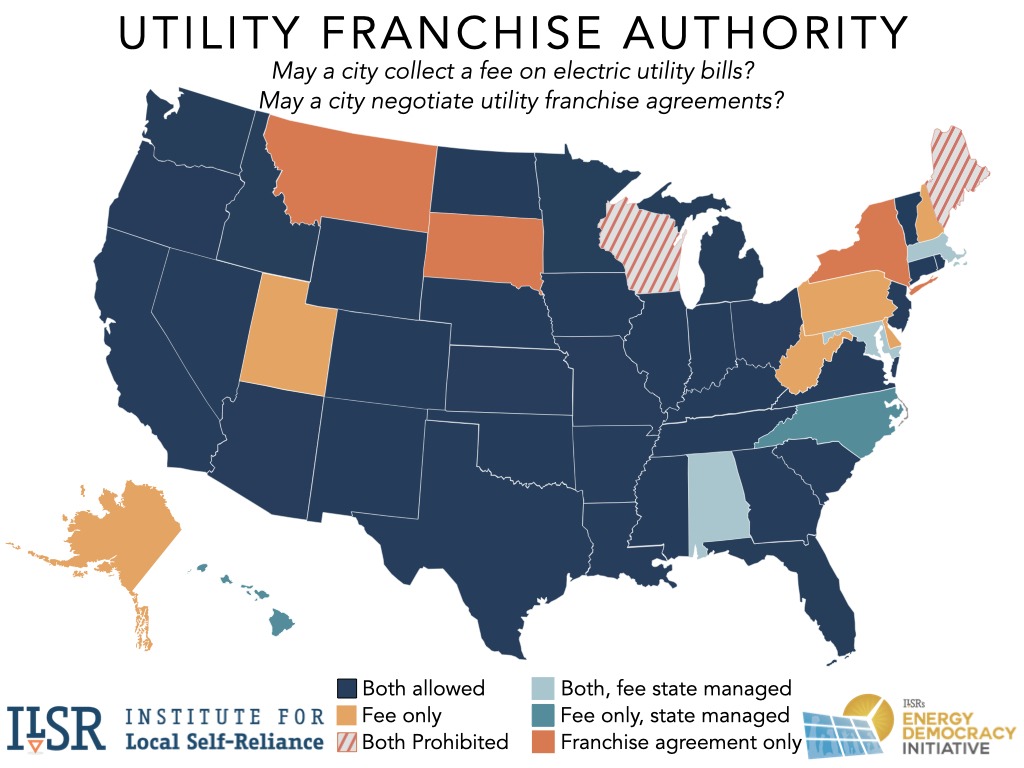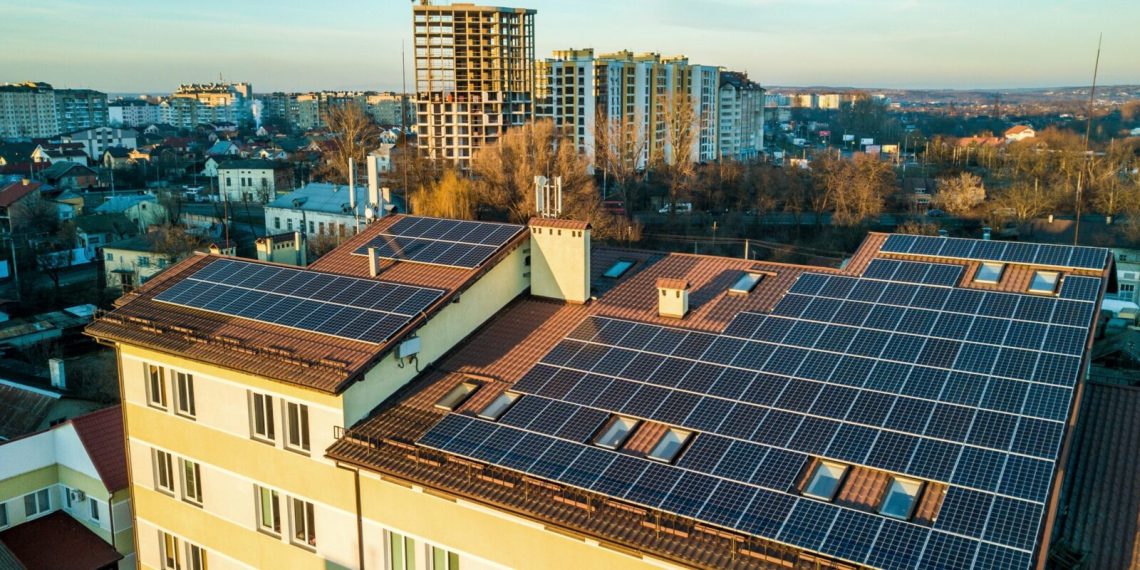
Originally published on ILSR.org
To invest in energy conservation and clean energy generation is to invest in a healthier community.
For this episode of the Local Energy Rules podcast, host John Farrell talks with Patrick Hanlon, Director of Environmental Programs for the Minneapolis Health Department. They discuss Green Cost Share: a program that promotes public health by matching investments in solar and energy efficiency projects.
Listen to the full episode and explore more resources below — including a transcript and summary of the conversation.
Podcast (localenergyrules): Play in new window | Download | Embed
Subscribe: Apple Podcasts | Stitcher | RSSEpisode Transcript
Clean Energy, the Environment, and Public Health
Green Cost Share was established “to create a cleaner, healthier, and more sustainable City of Minneapolis.” Hanlon directs the program out of the Minneapolis Public Health Department. Previously, he has advised the city’s Clean Energy Partnership.
A sustainability program run by the health department may seem like an odd match, but Hanlon explains how climate change poses a serious risk to public health. Whether it’s heat waves, air pollution from wildfires, or an expanding territory for disease carriers, the consequences of climate change are dire.
The Minneapolis Green Cost Share program helped dry cleaners eliminate “perc” (Perchloroethylene), a cancer-causing pollutant, from their operations. Now, Green Cost Share funds are directed toward clean energy generation and reducing energy consumption. This includes solar group buys, installing solar on community centers, and energy efficiency audits for affordable housing.
How Does Green Cost Share Work?
As described by the City of Minneapolis, “Cost Share offers matching funds for commercial, industrial, multi-family, and single family properties undertaking an energy efficiency, solar, or innovative pollution reduction project.”
The Green Cost Share program collects funds from two sources: a fee on pollution and the utility franchise fee. The pollution fee is an annual fee companies must pay according to the social impact of the pollution they create. The franchise fee, assessed on customer bills, is the fee Minneapolis collects from the utility to do business in the city. In 2017, the city increased the franchise fee by half a percent.

Cost Share, when combined with other rebates and federal incentives, may cover up to 90 percent of project costs. This deal is crucial for retrofitting rental housing; since tenants pay the heating and electric bills, property owners have very little incentive to invest in efficiency.
We work with all of our partners to really bring resources to the table, to help support small businesses, to support tenants and multi-family buildings by helping the owners improve the equipment.
Read more about the Minneapolis franchise fee and the Clean Energy Partnership in this blog post.
Public and Private Partners
Hanlon hopes that Green Cost Share can build on work that is already underway. For this reason, his department works with other city departments, like the sustainability office, clean energy advisory committee, and the community planning / economic development department.
Green Cost Share also works with community partners in Minneapolis, including Lake Street Council and the West Broadway Business and Area Coalition.
We’re all trying to work hand in glove and really play the right niches within the city.
Concentrating Impact Where it Counts
Between 2016 and 2019, Cost Share invested 3.5 million dollars in energy efficiency and solar. These investments have built 10 million kilowatt hours of solar capacity and served 1,000 low-income households.
Serving low-income households is not enough. Reducing pollution means working in environmental justice communities, says Hanlon, where pollution is most concentrated. This is why Green Cost Share is honing in on the Minneapolis Green Zones: communities identified as facing “the cumulative effects of environmental pollution, as well as social, political and economic vulnerability.”
As we’re redirecting these climate action funds, how do we use that money to reduce the energy burdens and how do we use that money to help build wealth?
After prioritizing Green Zone investment through the Cost Share application process, projects in Green Zones now have twice the approval rate as projects elsewhere.
Cost Share Could Do More
Green Cost Share alone won’t get Minneapolis to its ambitious 100% clean energy and 10% local clean energy goals. Still, Cost Share could be scaled up. The program often runs out of funds by February or March, says Hanlon.
In 2019, Cost Share contributed to 173 projects and 5,500 tons of reduced carbon dioxide emissions. If the franchise fee were increased from .5 percent to 3 percent, says Hanlon, the benefits would also multiply by six. There is more than enough demand, but not enough money.
That’s more than just significant, that’s game-changing for a city the size of Minneapolis. You really start to bend the curve down towards hitting your 80% reduction goals by 2050, if you can maintain that level of reduction.
Episode Notes
See these resources for more behind the story:
Other cities with innovative climate action funding:
For concrete examples of how cities can take action toward gaining more control over their clean energy future, explore ILSR’s Community Power Toolkit.
Explore local and state policies and programs that help advance clean energy goals across the country, using ILSR’s interactive Community Power Map.
This is episode 121 of Local Energy Rules, an ILSR podcast with Energy Democracy Director John Farrell, which shares powerful stories of successful local renewable energy and exposes the policy and practical barriers to its expansion.
Local Energy Rules is Produced by ILSR’s John Farrell and Maria McCoy. Audio engineering for this episode by Drew Birschbach.
This article originally posted at ilsr.org. For timely updates, follow John Farrell on Twitter, our energy work on Facebook, or sign up to get the Energy Democracy weekly update.
Featured Photo Credit: Bilanol via iStock





